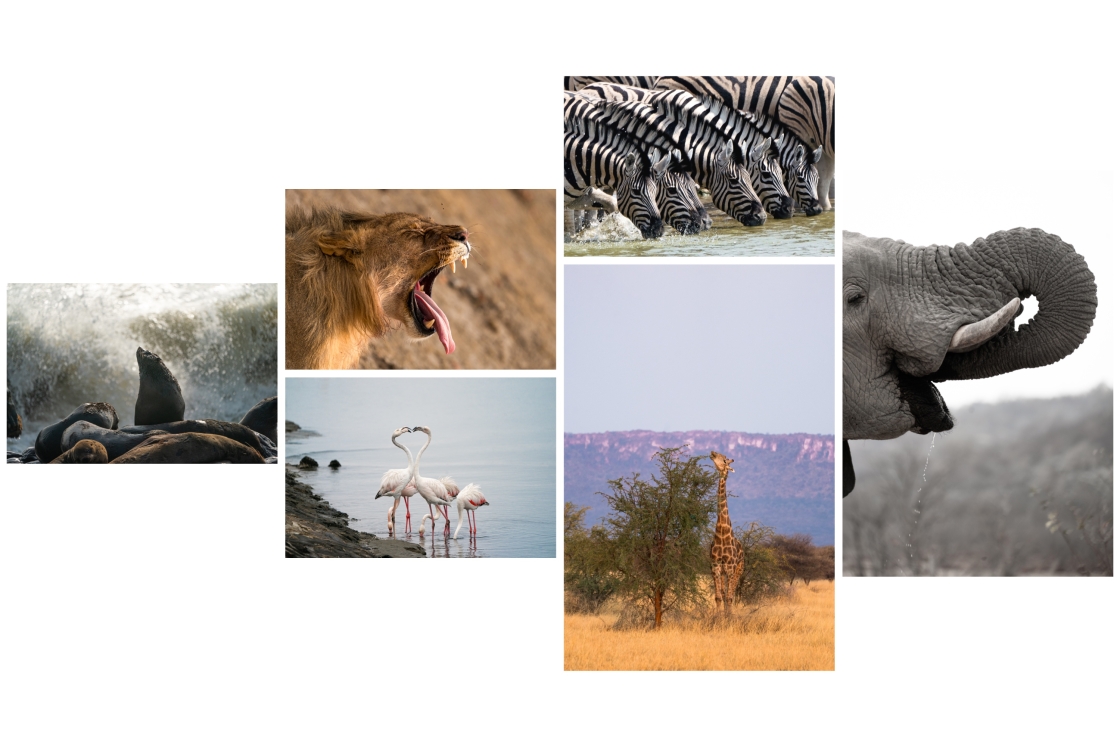News subtitle
Students learn about conservation, resource management, and environmental policy in the foreign study program in Namibia and South Africa.
Office of Communications social media intern Buntida “Beam” Lertbunnaphongs ’25 spent the fall term on the Environmental Studies Foreign Study Program Southern Africa, which is held in Namibia and South Africa.
Students get a firsthand look at such issues as resource management in a fragile climate, with the central theme being the intersection of conservation and human development in the region.
The FSP is highly experiential, and, fortunately, Beam, an environmental studies major with a minor in human-centered design, had her camera at the ready.
Photos by Buntida Lertbunnaphongs ’25.
Photos
Image
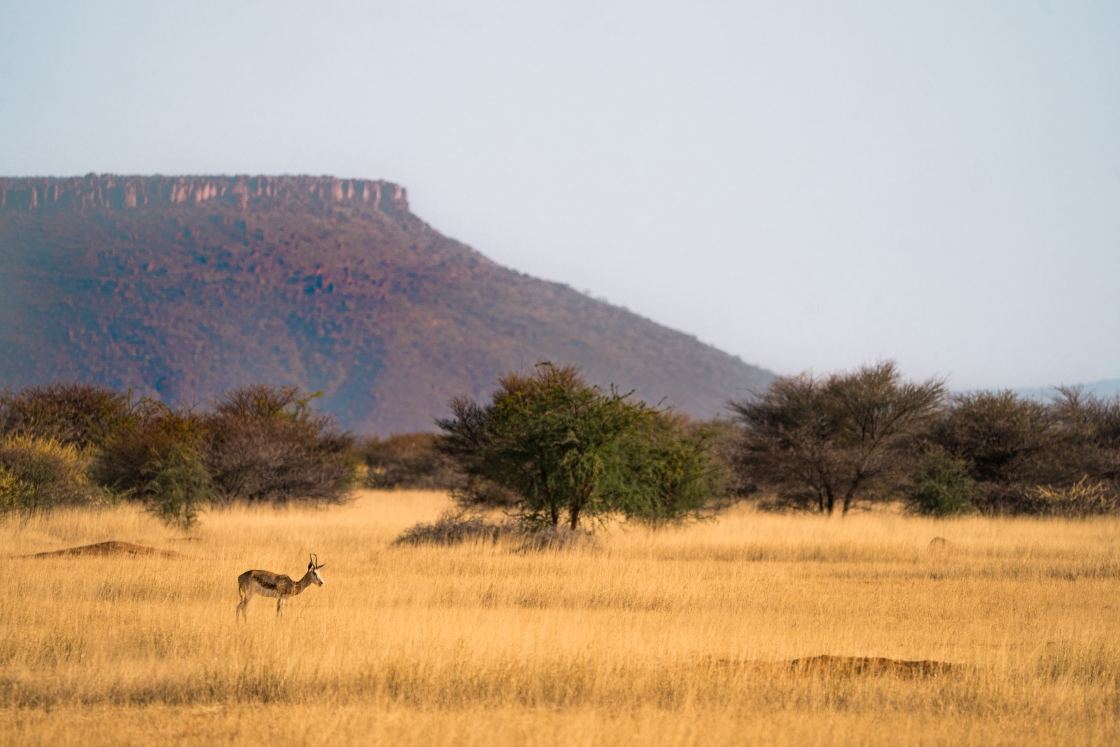
A springbok grazes in the sunset-soaked plains overlooking the Waterberg Plateau in central Namibia.
Image
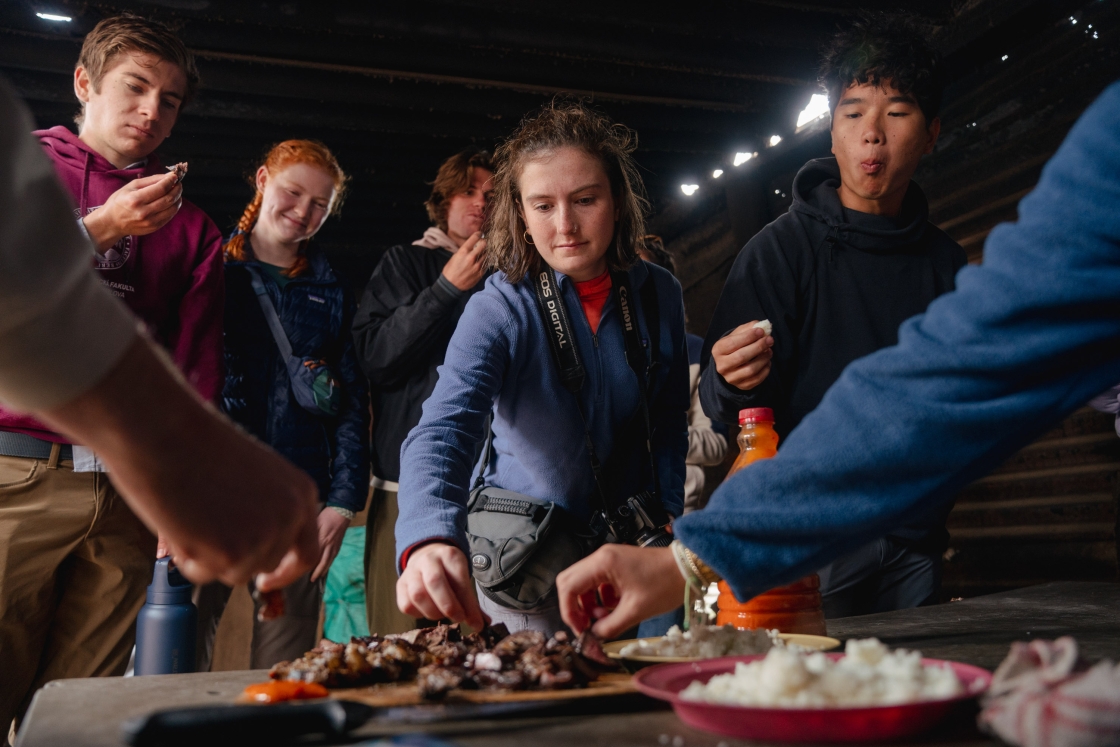
Students taste home-cooked local cuisine, including grilled ox heart and pap, during their visit to a township in Soweto, South Africa. Many of the township residents work in the mines the group was studying.
Image

Evelyn Hatem ’24 and Chio Barrionuevo Quispe ’23 take a stroll outside Lebo’s Backpackers lodge after exploring Soweto via tuk-tuk rides.
Image
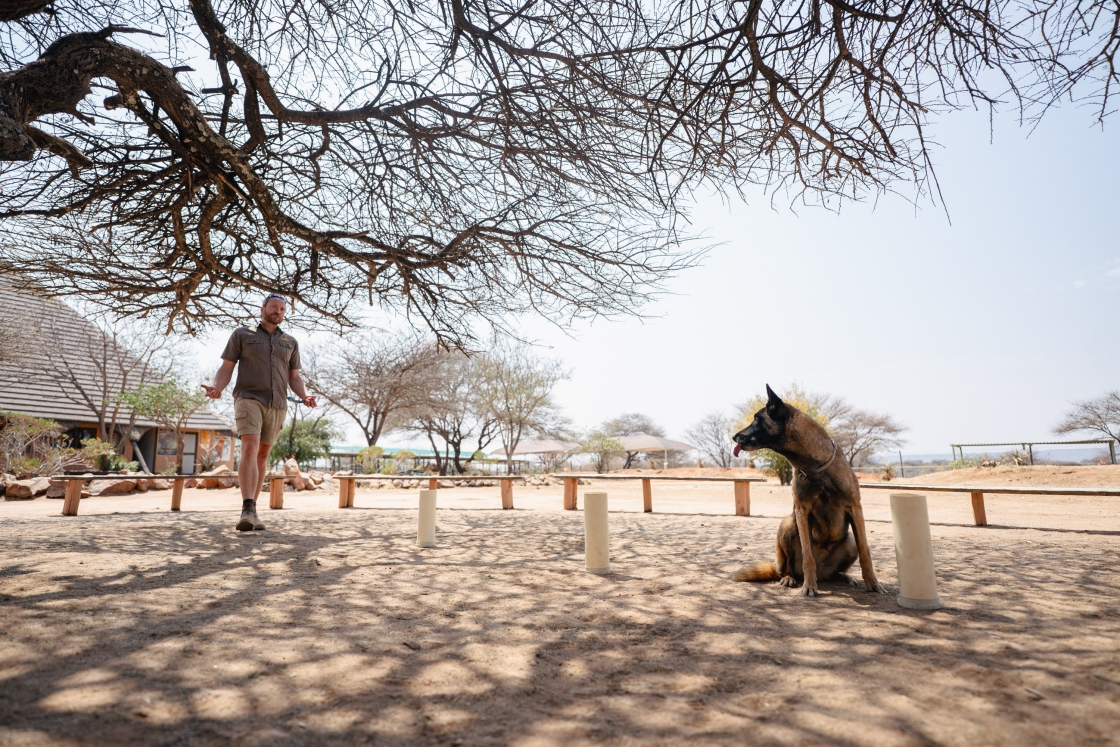
Researcher Tim Hofmann and his scat detection dog at the Cheetah Conservation Fund’s field base in Namibia demonstrate how they locate cheetah scat in the wild. This gathers crucial conservation data while minimizing disturbance to the animals.
Image
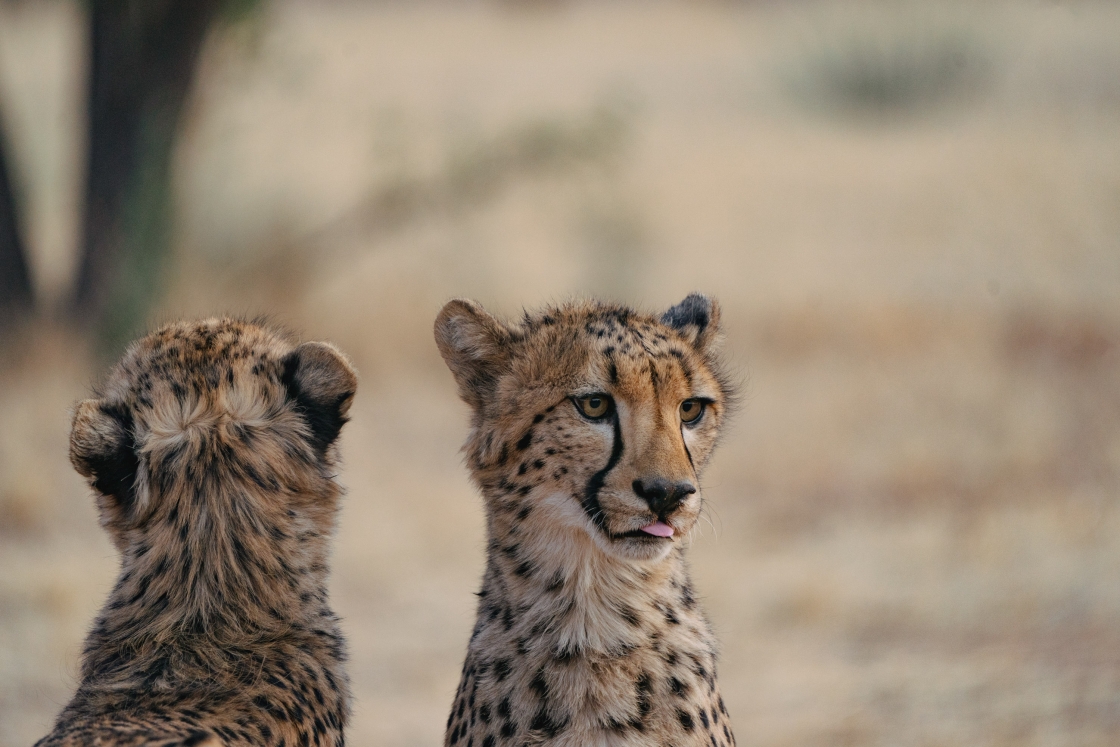
Cheetahs in rehabilitation at the Cheetah Conservation Fund in Otjiwarongo, Namibia.
Image
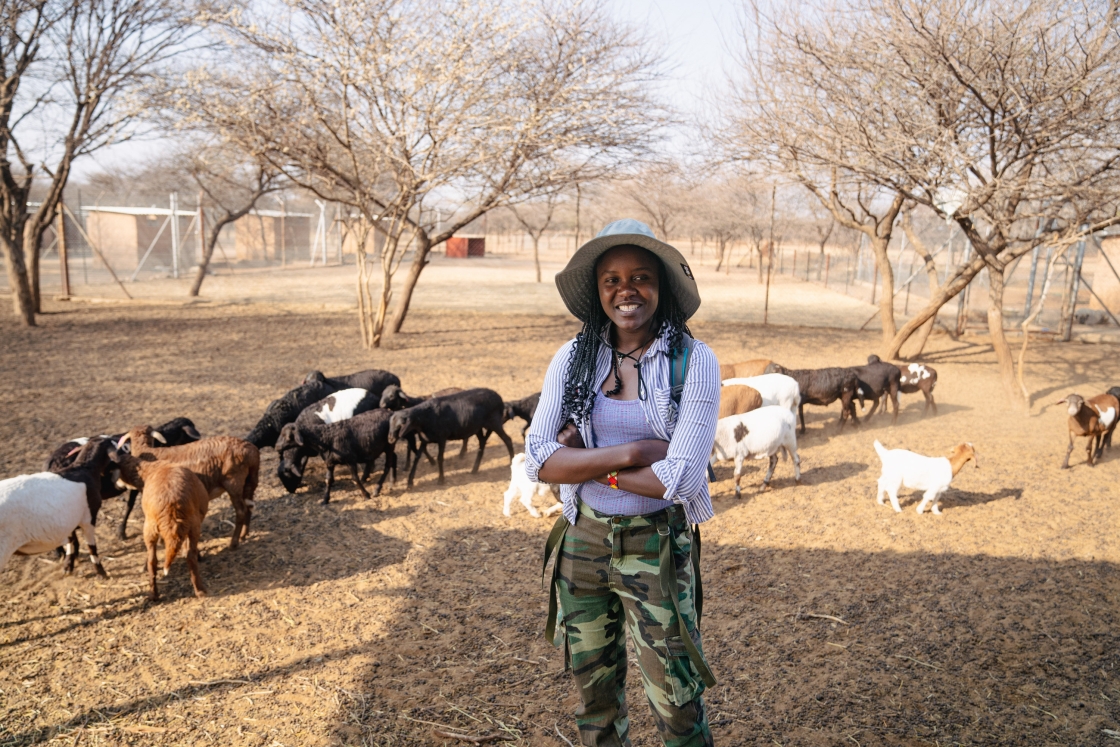
Saima Shikesho, a PhD candidate in the Ecology, Evolution, Environment, and Society Program, was an integral part of the trip, mentoring students in the FSP as a teaching assistant.
Image

Emma Ratchford ’25 and Eiha Patnaik ’25 prepare dinner for the group next to “Big Blue.” The overlander bus served not only as the main mode of transportation throughout the trip, but also where students spent much of their time.
Image
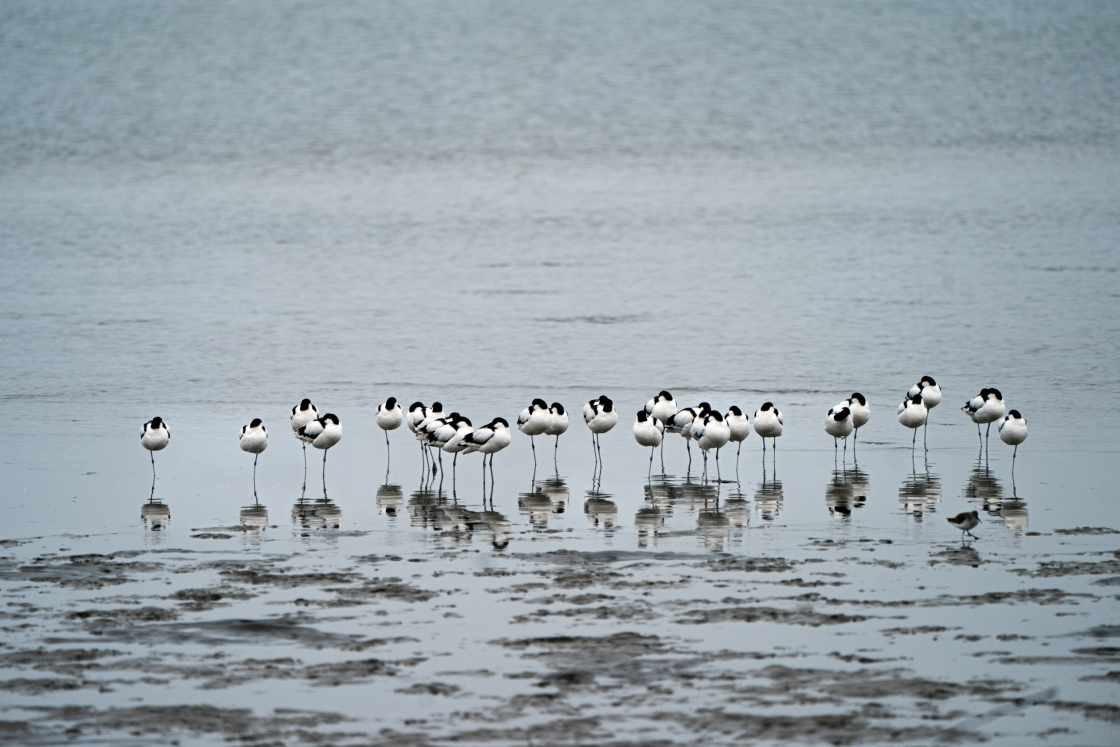
A flock of pied avocets rest along a shoreline. In Namibia, habitat loss and degradation in wetlands and coastal areas have diminished stopover sites for migratory water birds, altering their migration timing and routes.
Image
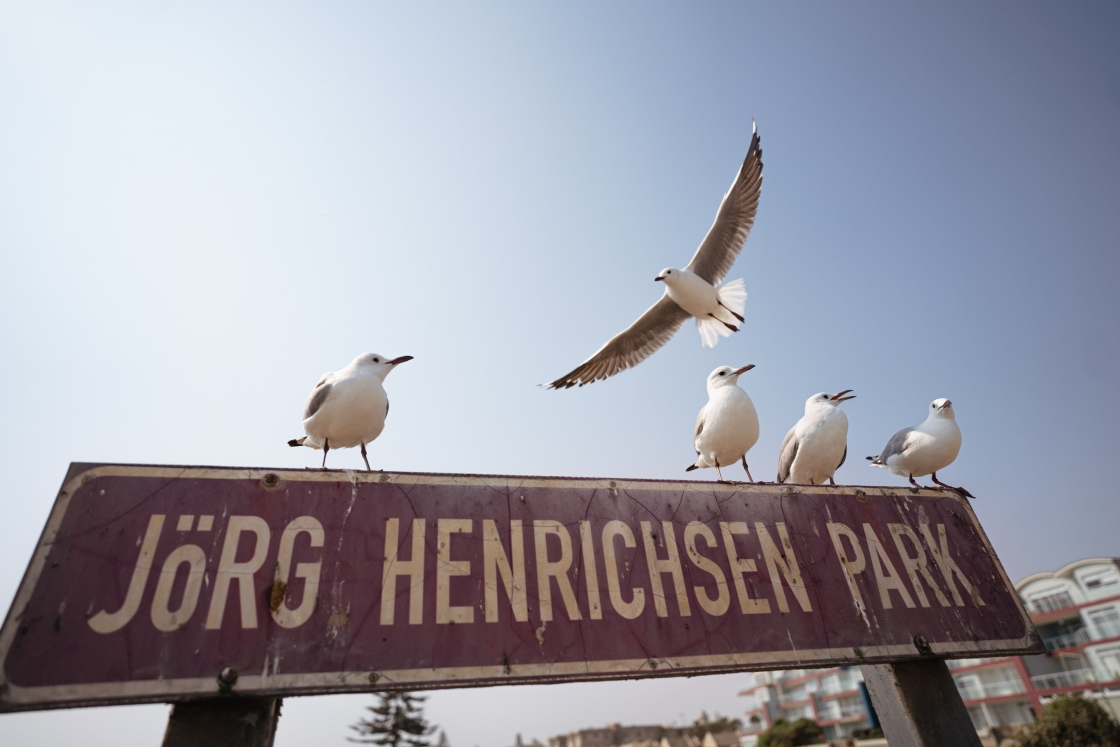
A sign in a city park near the South Atlantic Ocean in Swakopmund, Namibia, named for a mayor known for his efforts to preserve and restore historical buildings and structures.
Image
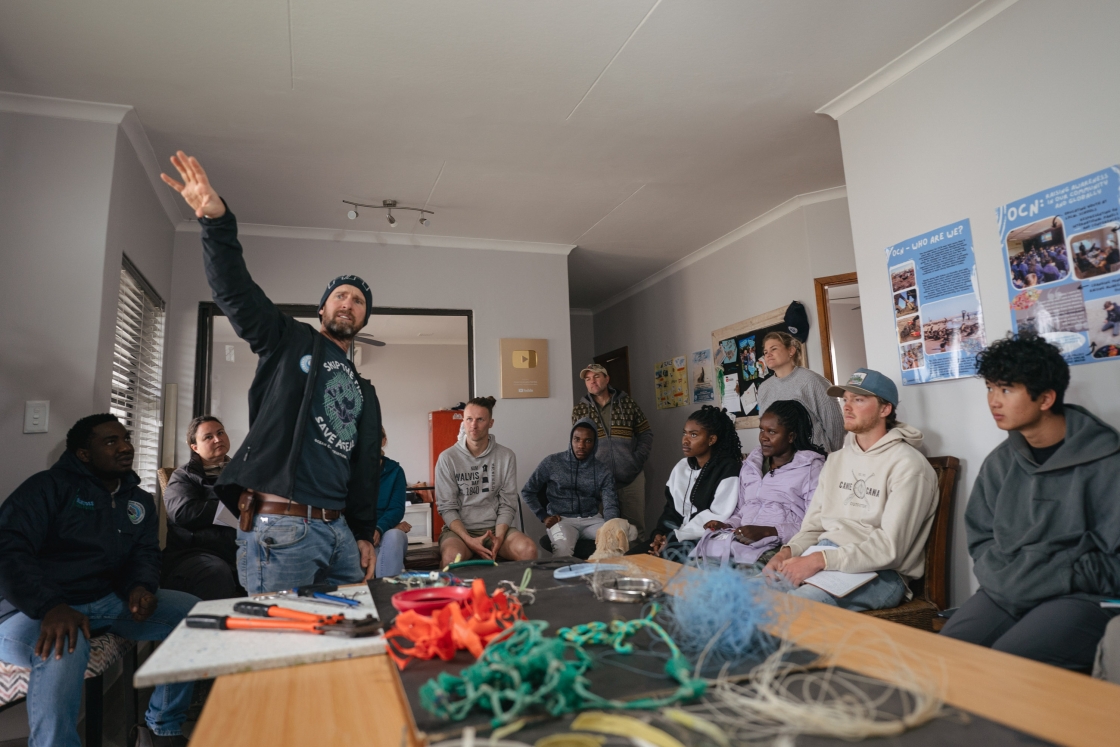
Naude Dreyer, founder of Ocean Conservation Namibia, discusses the vast impact of human-induced plastic pollution on marine life, and outlines seal rescue and local outreach projects aimed at addressing the issue alongside community stakeholders.
Image
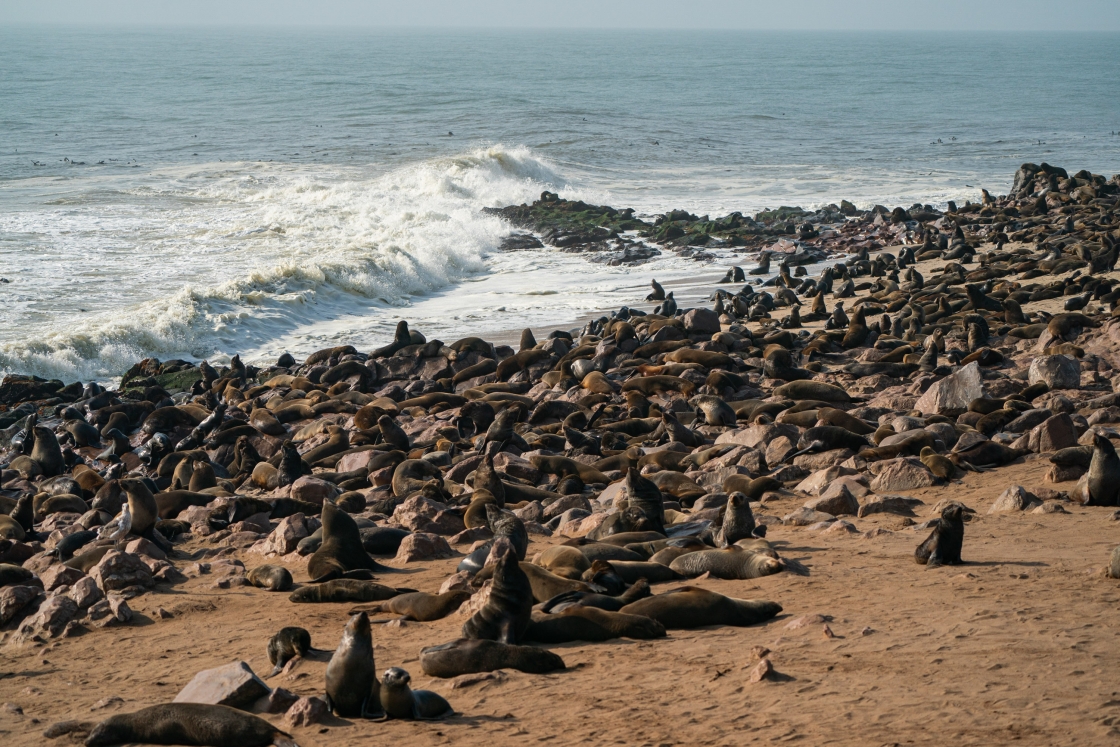
Cape fur seals bask on a sunny beach in Cape Cross, Namibia. It is the largest colony of Cape fur seals in the world.
Image
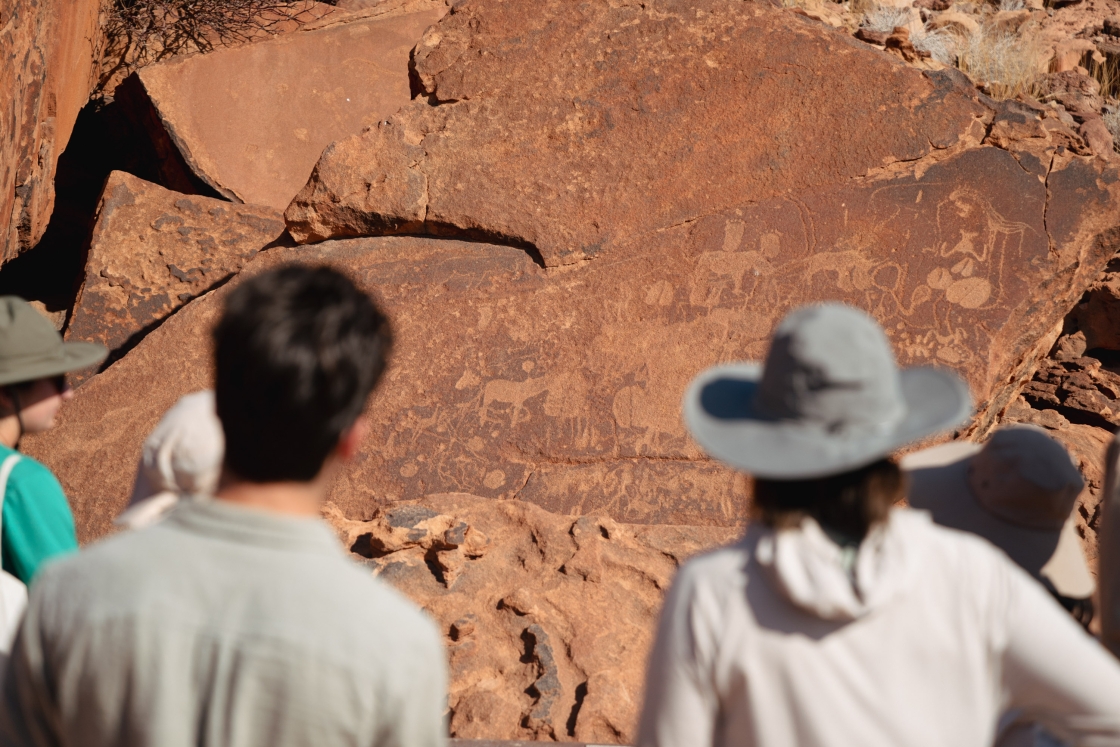
Students visit Twyfelfontein, an “open-air gallery” with the largest single concentration of rock art engravings in southern Africa. The UNESCO heritage site houses engravings by the Damara people, one of the oldest ethnic groups in Namibia, with roots dating back to ancient times
Image
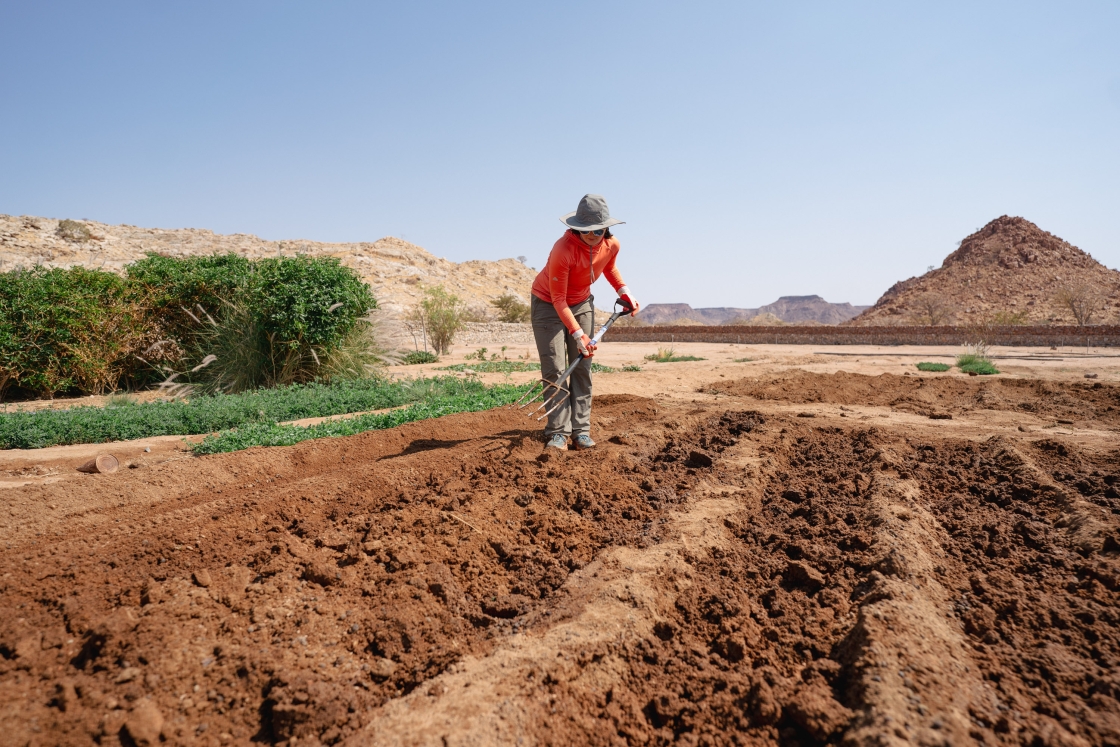
Madeline Wolfe ’25 loosens soil in a community garden of the Uibasen-Twyfelfontein Conservancy in northwest Namibia. Students spent a few days helping to shape agricultural space for use.
Image
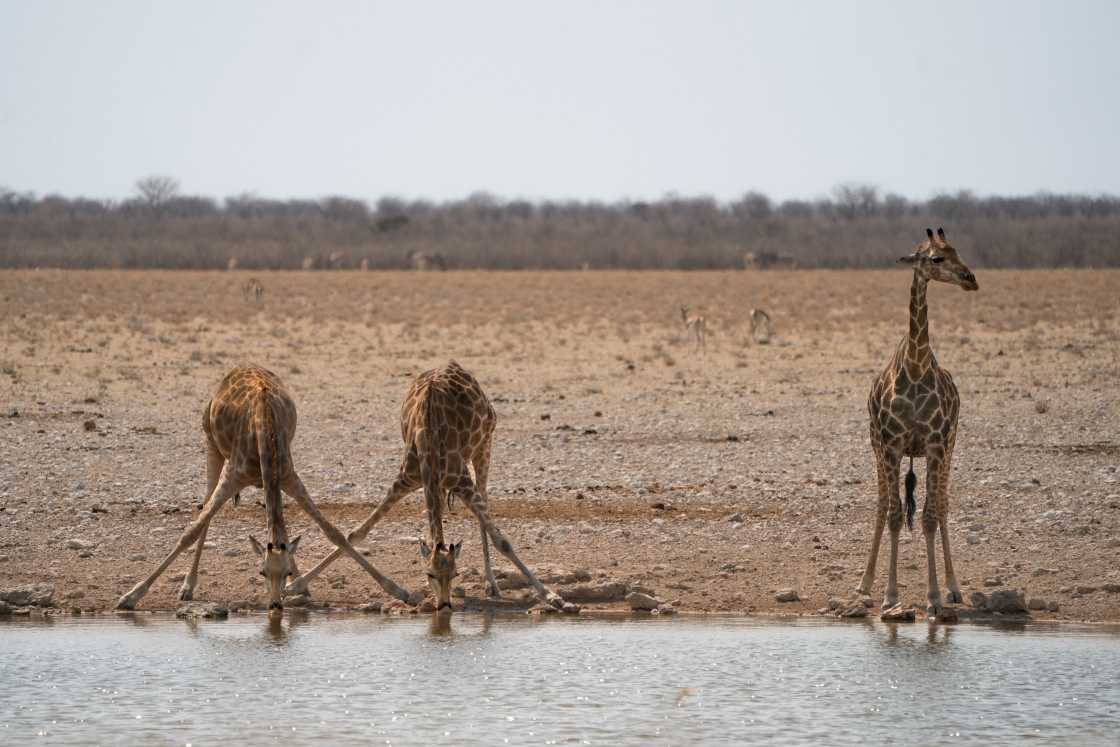
Three giraffes pause for a drink at a watering hole in Etosha National Park in Namibia.
Image
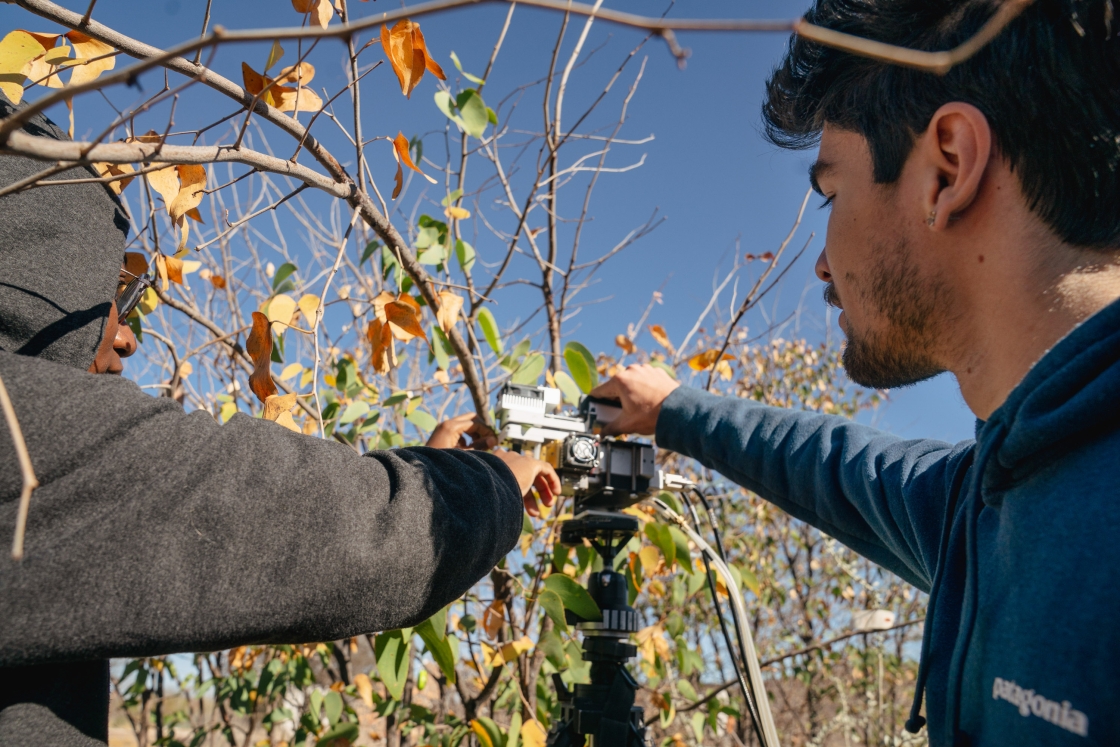
Daysia Charles ’25 and Liam Nokes ’25 analyze the evapotranspiration from leaves of a mopane tree, a culturally significant plant utilized by local Namibian communities for medicinal purposes, food, shelter, and traditional rituals.
Image
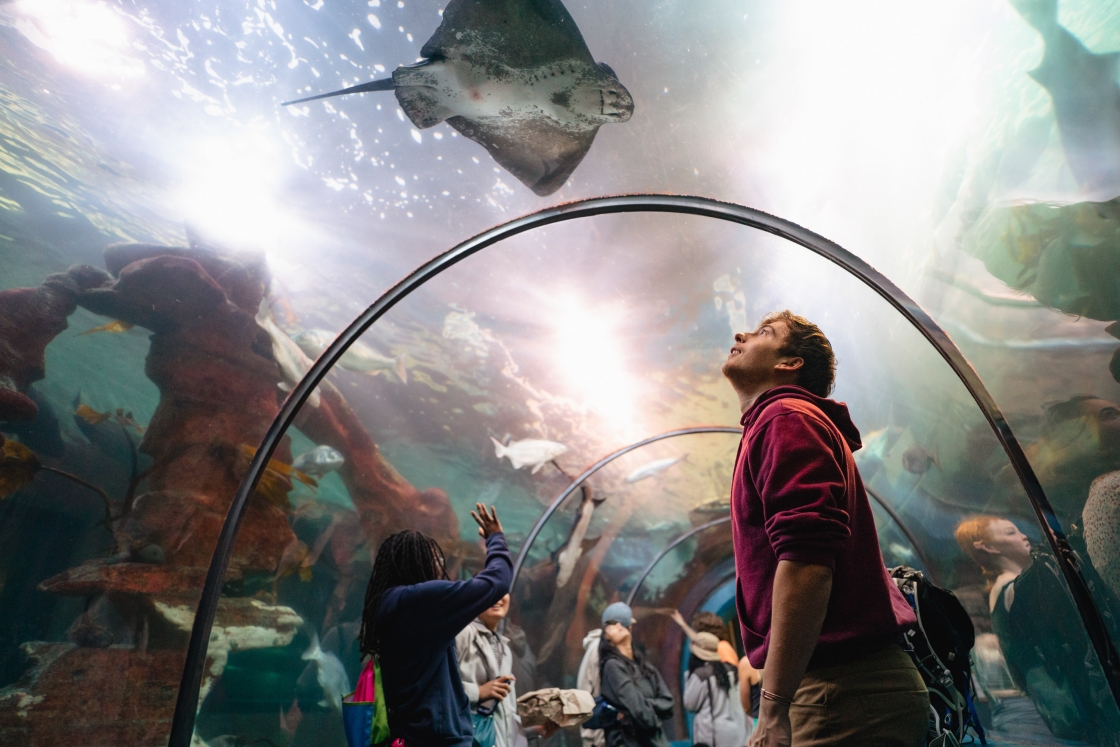
Arne Grette ’25 marvels at a stingray swimming overhead during a trip to the National Marine Aquarium as part of a look at the environmental challenges associated with the Namibian fishing industry.
Image

Students race down the sand dunes of the Namib, a coastal desert, to celebrate the culmination of weeks spent conducting ecology field research at the Gobabeb Research Institute.
Image
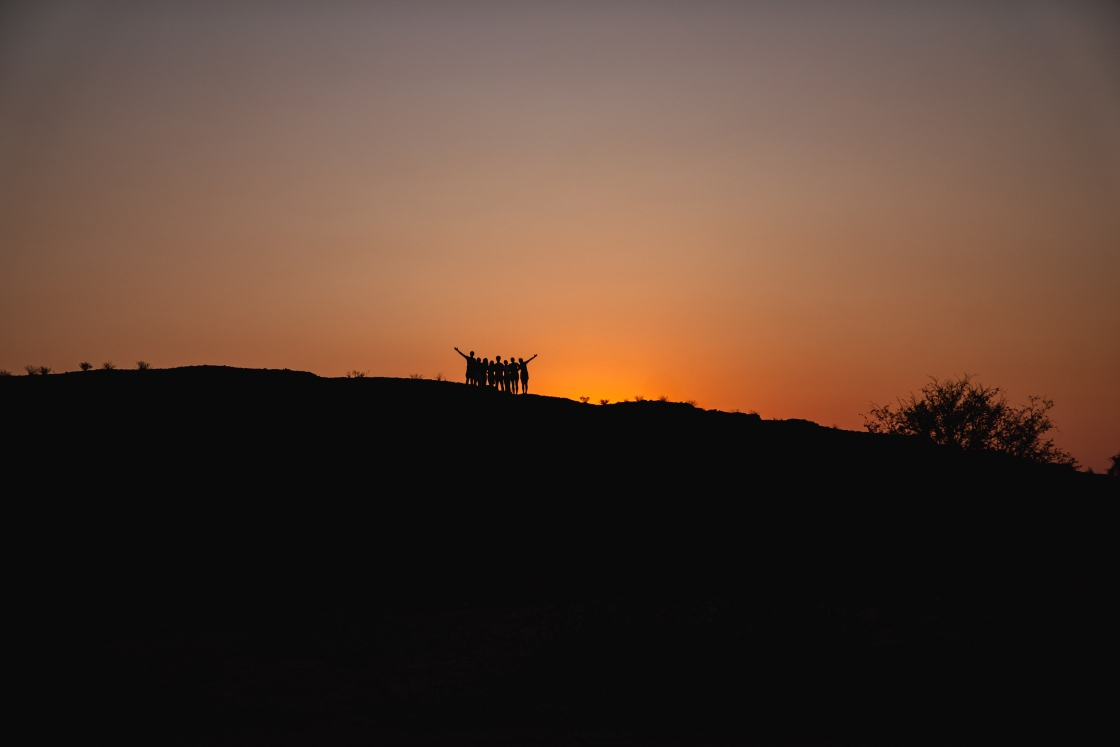
Students gather to watch the sunset from a small cliff by their campsite at the Uibasen-Twyfelfontein Conservancy in Namibia.
Image
